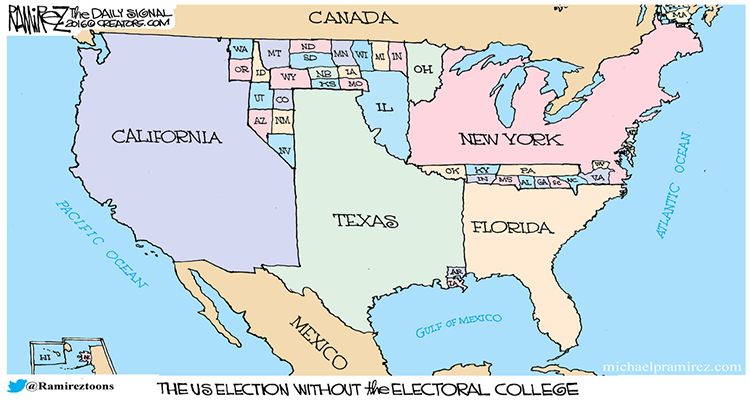Kerby Anderson
A recent vote in the state of Connecticut brought the country one step closer to the dismantling of the Electoral College. Ten years ago, I first wrote about states that passed the National Popular Vote Interstate Compact. Back then there were two states that passed it. Now there are eleven states and the District of Columbia.
These states have entered into a compact in which they agree to allocate their electors to the winner of the national popular vote regardless of how their citizens voted. The compact goes into effect when states holding 270 electoral votes have agreed to the plan. So far states with a total of 172 electors have approved the measure.
Tara Ross, in a recent article, reminds us that the vote in Connecticut against the Electoral College is so ironic. One of the major founders of this country is Roger Sherman. That Connecticut statesman was an influential delegate to the Constitutional Convention and responsible for what has been called “The Great Compromise” that gave Congress a bicameral structure. He didn’t want the large states to always dominate small states like Connecticut and Rhode Island.
That is also the reason he opposed the direct popular vote for the presidency. He knew that his small state (and other small states) would also be outvoted. He feared that the people “will generally vote for some man in their own state, and the largest state will have the best chance for the appointment.”
We can see this in the last election. Hillary Clinton received more than 65 million votes from just two states: California and New York. If we had a direct popular vote she might have merely focused all her attention on places like New York, Los Angeles, and Chicago.
Roger Sherman understood what could happen without the Electoral College. Unfortunately, the legislators in Connecticut today don’t understand this.
 Listen Online
Listen Online Watch Online
Watch Online Find a Station in Your Area
Find a Station in Your Area












 Listen Now
Listen Now Watch Online
Watch Online
